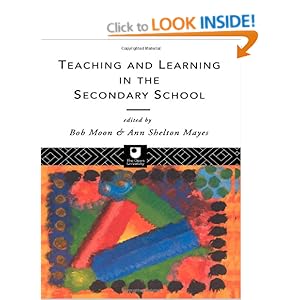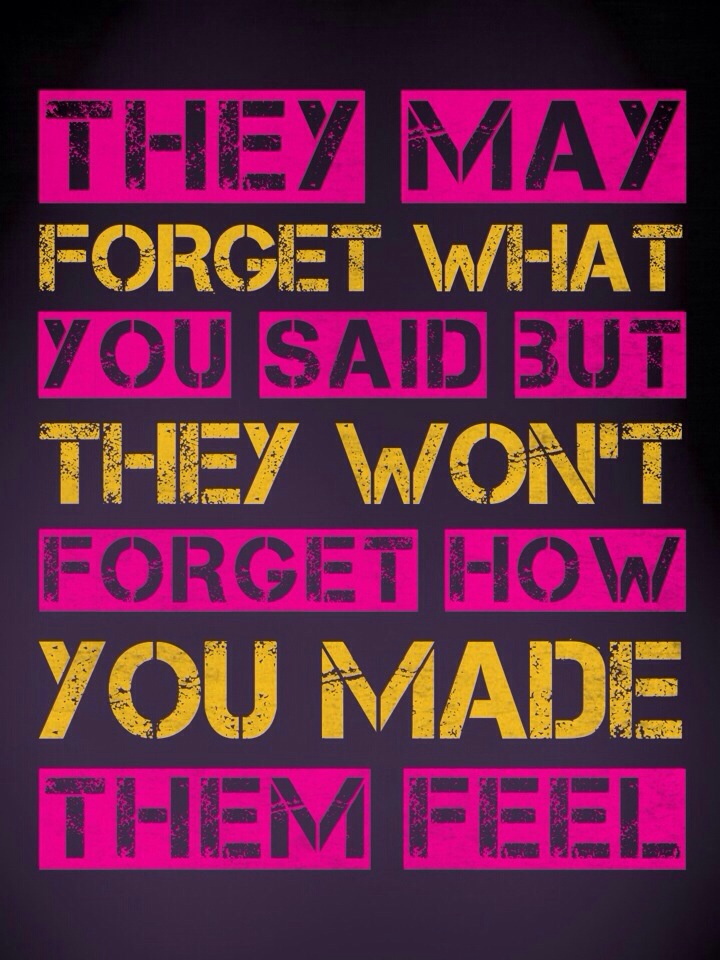
With this new academic year looming ever closer, I’ve been thinking about what it must like to be an NQT starting your teaching career in the current edu-political climate in the UK. Certainly, I don’t think there has ever actually been a better time to be a teacher. In my nearly twenty years in the business of helping young people, I don’t think there’s ever been a more collegiate, supportive and exciting time to be involved in education.
Of course, that’s not to say that the job has got any easier. In fact it hasn’t. The amount of scrutiny in our high stakes profession make the job have far more pressured than it used to. Reading posts such as “We’ll change once we’re out of RI” by @MissDCox and the flurry of books available to help you achieve outstanding this and outstanding that – the job is completely different now to what it was back then although the opportunities for learning as a professional have increased enormously. I still remember with pleasure reading copies of books such as “Teaching and Learning in Secondary Education” when doing my BEd. The education landscape was very different back then. I was reading essays such as Brian Simon’s ‘Why no pedagogy in England’ and learning about teaching and learning in a way which is so very different to how it is now.

Just this past week, the Teach First Impact conference in Leeds preparing them for their career – lectures and learning opportunities galore from some of the freshest thinkers in the education landscape today shows just how much things have changed. Check the #TFSI2014 hashtag and read @jon_brunskill‘s post summarising just one of the many sessions there.

It would of course be incredibly naive of me to expect things to be the same now as they were in 1997. Of course things have moved on. Some things haven’t really changed that much though. Children are still children. People are still people. And so, in the spirit of sharing, I thought I’d share some things that I have learned that might help others in their classroom journeys. One thing is for sure – Pedagogy certainly exists in England now!
I remember when I first started teaching that one of the areas I found quite difficult, particularly with the inevitably more challenging Year 9 classes, was classroom management. Nothing can really prepare you for the butterflies and worry you’ll have in your first classes.
Non verbal communication
Some people think of me as being a quirky teacher. I wouldn’t necessarily agree, but I do like to keep my students on their toes. Getting their attention quickly when I want or need it is something which in a classroom setting, I don’t have time to wait for. Neither do they. I train my classes to respond to different cues. For example, if I want their attention, one such way is to quickly say; “clap your hands twice if you can hear my voice”. Not only is this quick, students respond well to it in my experience and it quickly highlights to me who is and who isn’t paying attention. For those that aren’t paying attention, the noise of 20 or so students clapping is enough to know it’s time to put pens down / stop typing and pay attention. The audio cues also confirm belonging to the group. The group recognises through the group actions that we all learn together.
There are other things you can do too. Many teachers favour the countdown. I some times do this, but equally, I often utilise one of the many short ‘Countdown’ clips there are on YouTube. There are also a lot of plugins for PowerPoint and the like too which put built in timers on to your slides such as these here. The video below neatly shows you how you can create your own too:
Questioning
There’s lots you can do with questioning in your classroom. Question formulation technique. Socratic questioning (and much much more). For me, my overriding philosophy is that I really do like to ensure that students in my lessons aren’t given an easy ride. Having worked with Jim Smith (@thelazyteacher) for a few years, I’ve certainly got drilled in to me some great questioning techniques. One thing I never do is accept ‘I don’t know’ as a response to a question in my lessons. I still get students saying it. Even now. But I don’t ever accept it. “What if you did know”. “What would (other student in the class) Dave say the answer was?”. “What if I gave you a million pounds to know the answer? What would you say then?”. I never spoon feed the students and I never give them an easy ride where their learning is concerned. Yes. Of course I’ll support them. I’ll differentiate appropriately and give lots of opportunities for response, positive praise, pause, pounce, bounce, top, tail – you name it. But I never spoon feed and I never make it easy for them. Learning’s hard work. Stretch. Challenge.
Keep Calm
Do you know what? Stuff goes wrong. Even the best laid plans. It’s true. And it will always continue to happen. Even to me. In an IT lesson. Things will still go wrong. The trick is to not lose your cool.
Experience will allow you to be able to quickly shift to an alternative but what about your students? If the tool they are using, for whatever reason, isn’t working – what do you do? For me, I train my students to always have a plan b. Even if it is getting some paper and writing copy or making notes or doing something analogue. They should always be actively engaged in their learning activities. Even if it’s an explicitly ICT / Computing based activity. You can still code on paper. You can still storyboard on paper. Progress. Learning. It can all happen without the technology. Learning first. Technology second.
Try asking them too – the students that is. You’ll be amazed how brilliant they are. Do you have digital leaders in your school? Chances are you may have one in your class too who can help you out. Ask them. Don’t just ditch the activity because it isn’t working quite the same way it did at home. (You did test this activity out in school beforehand and not just at home didn’t you?!).
As for you – I know it can take a lot of confidence to use technology in your classroom. Stick with it. I promise you. It won’t always blow up in your face. Honest! And if it does – remember to talk with your tech team about it. They will want to support you being able to use edtech in your classroom.
Marking
Research, meta-analyses, points of view, student voice, parent voice, teacher voice, SLT – these will all inform your marking and assessment. I have one simple piece of advice here. Stay on top of it. If you let it slide. If you put it off. You’re in trouble. Don’t over-egg it – use your nowse. Get a verbal feedback stamp to help you in class (get the students to write your verbal feedback next to where you’ve stamped). Give students stickers to go alongside your formative feedback – they’re not to be used in place of decent marking (only when they’ve done work worthy of a sticker. Everyone loves a sticker! You can buy bucket loads of them for £1 in many a shop, e.g. ‘Proper Job’). You can make sure you’re hitting the regular formative assessment, after all ‘marking is an act of love‘. But most of all. Absolutely. 100 percent. Stay. On. Top. Of. It. That, is absolutely key – for as many teachers agree, marking IS planning and it’ll help keep you honest throughout your entire career.
Worksheets
Please don’t feel the need to give out hundreds of worksheets. They’re simply not necessary. Rubrics – helpful. Learning mats – helpful. Worksheets. Please. Don’t do it. Or at least not death by worksheet. Your students won’t thank you for it.
Relationships
Don’t be an island. I know. It’s difficult. You’re just going to be so so busy. Just don’t become as Pete Jones aptly writes in his blog on developing growth mindset in your classroom:
“Teachers can be the very antithesis of a growth mindset. Having routines and expectations of ‘that bottom set’, which haven’t changed in the last 20 years.”
Don’t be like that yourself. Get out. Go and see your colleagues teach (asking first preferably) and get in to the staff room too. Don’t be shy. Be prepared to learn. Some of my best learning as a teacher has come, not from attending Teachmeets or Twitter but actually getting in to the classrooms of other teachers and picking up their best traits and making them my own. This post titled ‘I Lie About My Teaching‘ contains bucket loads of advice about our profession too. Absorb it.
That’s about enough from me now. I suspect I’ll get slammed for some of the things I’ve said here but there you go. It’s what works for me and I hope you’ve found it useful. Cheers!



















Thank you for such a brilliant post. I’m about to forward a link on my work twitter feed @LancingLearning because I think it is full of timely ideas as we plan our first lessons for the new term. I was quoting TPACK last night. You’re right, mustn’t forget the pedagogy.